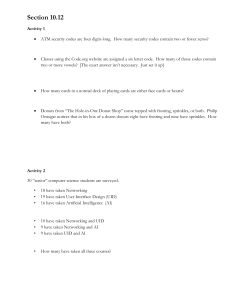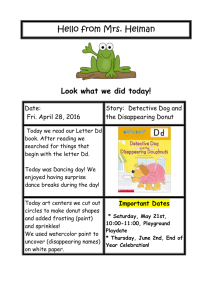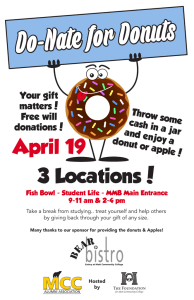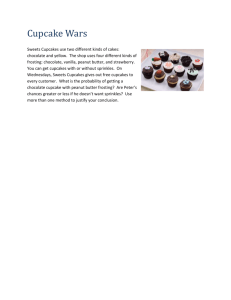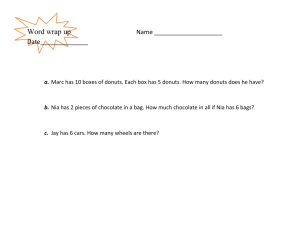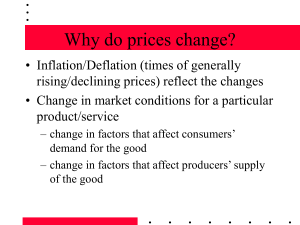Section 10.12 Counting Problems wrapup
advertisement
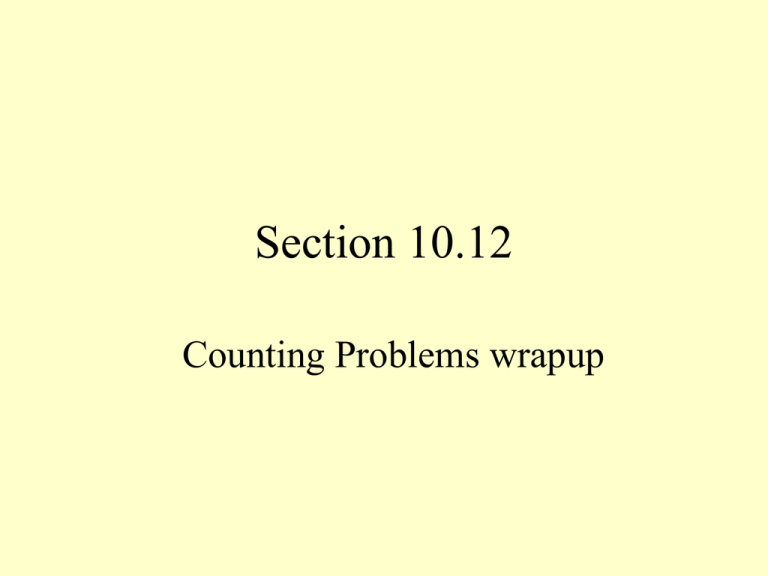
Section 10.12 Counting Problems wrapup Activity #1 • ATM security codes are four digits long. How many security codes contain two or fewer zeros? • Classes using the Code.org website are assigned a six letter code. How many of those codes contain two or more vowels? [The exact answer isn’t necessary. Just set it up] • How many cards in a normal deck of playing cards are either face cards or hearts? • Donuts from “The Hole-in-One Donut Shop” come topped with frosting, sprinkles, or both. Philip Onsugar notices that in his box of a dozen donuts eight have frosting and nine have sprinkles. How many have both? Complement Principle • Sometimes it is easier to find the number of times something DOESN’T happen rather than the number of times that it does. • You can then use the following formula: | A | = | U | - | Ac | Inclusion/Exclusion Principle • To find the total number of combinations in two sets (events) use: Activity #1 • ATM security codes are four digits long. How many security codes contain two or fewer zeros? • Classes using the Code.org website are assigned a six letter code. How many of those codes contain two or more vowels? [The exact answer isn’t necessary. Just set it up] • How many cards in a normal deck of playing cards are either face cards or hearts? • Donuts from “The Hole-in-One Donut Shop” come topped with frosting, sprinkles, or both. Philip Onsugar notices that in his box of a dozen donuts eight have frosting and nine have sprinkles. How many have both? Activity #2 • 30 “senior” computer science students are surveyed. • 18 have taken Networking • 19 have taken User Interface Design • 16 have taken Artificial Intelligence • 10 have taken Networking and UID • 9 have taken Networking and AI • 9 have taken UID and AI • How many have taken all three courses? Inclusion/Exclusion Principle • To find the total number of combinations in two sets (events) use: Inclusion/Exclusion Principle • What do you do when there are more than three sets? Activity #3 • In two card poker you are dealt exactly two cards. • There are five types of hands. – Pair (two of the same rank, such as two Kings) – Straight Flush (two cards in a row of the same suit such as Ace and King of Hearts or 2 and 3 of Diamonds). – Straight (two cards in a row of different suites such as Ace of Hearts and King of Spades). – Flush (two non-consecutive cards of the same suit such as 6 and 9 of Clubs) – High Card (two cards that do not make any of the previous hands, such as 6 of Clubs and 9 of Diamonds)
